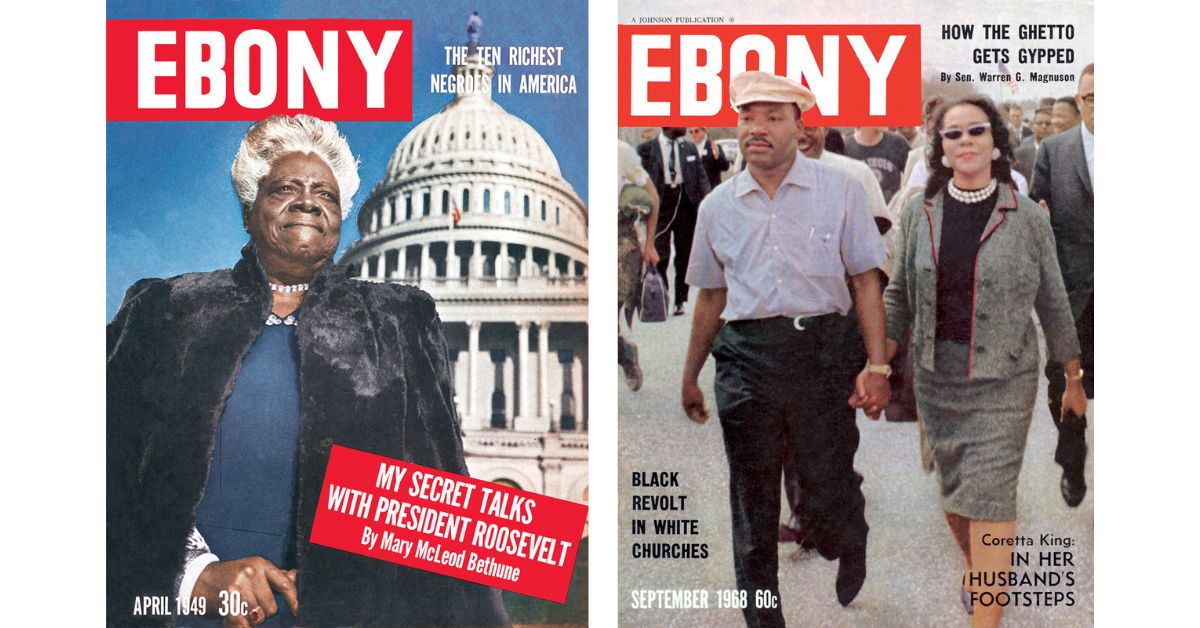Since the first issue of Ebony magazine was released on November 1, 1945, by Black businessman John Johnson, the publication has portrayed the glitz and grit of African life. He wanted it to be a Black version of Life magazine, founded by Henry Luce.
For years, Black people’s souls have been nourished by Ebony’s stories and glitzy images of Black politicians, sportsmen, protestors, artists, models, and college students.
The magazine recently encountered the same difficulties as many other conventional print publications. As it approaches its 76th birthday, the journal is starting over and aiming for a comeback with a new strategy.
In 2016, Ebony and its sibling publication Jet were sold by John Johnson’s company, Johnson Publishing, to a private equity firm. In 2019, Johnson Publishing filed for bankruptcy, and Ebony discontinued printing its magazine.
Alumnus of the Milwaukee Bucks and Black businessman Ulysses Bridgeman purchased Ebony and Jet for $14 million in December last year, marking the second time the publications changed hands. In March, it was formally relaunched.
Lessons from the historical Black press
To reach audiences, Ebony is embracing a wholly digital approach. But nowadays, Black people are the subject of numerous media articles. Clint Wilson, a journalism professor at Howard University, recalls a similar incident during the civil rights era.

“The white press, not just the written press, but television news shows. At that time, you had NBC, ABC, CBS — they were all covering the stories of civil rights,” he says. “We just lost control of our news.”
Several of the weekly newspapers still made up the Black press at the time. Wilson cites a figure of 200 as the current number. There may be hints about how to compete in today’s media climate buried in the Black press’s history.
“If we go back to the founding of the Black press, there was a hunger, a thirst to unify as a community,” Wilson says.
Freedom’s Journal, the first Black newspaper, was established in 1827. The Minnesota Spokesman-Recorder, the Pittsburgh Courier, the Chicago Defender, Frederick Douglass’ The North Star, and Charlotta Bass’ The California Eagle were among the many that followed.
“When the movie ‘Birth of a Nation’ was being filmed … [Bass] was the one that alerted other Black publications around the country that this film was being made and how degrading it was,” Wilson says, with Bass forcing the director to cut some scenes.
Also check:
- Intel’s Self-Driving Company Mobileye Files For An IPO
- What Is The Apple ID Scam? Why It Is Dangerous?
Ebony Changes Focus on Promoting Financial Education and Increasing Black Wealth
With its new slogan, “Move Black Forward,” Ebony invokes the spirit of mobilizing around causes like abolition, voting rights, and combating racialized housing and employment practices.
In January, Michelle Ghee was appointed CEO of Ebony. She claims the magazine is shifting to highlight Black “generational wealth.” Ebony isn’t giving up on celebrities and entertainment; instead, it’s emphasizing articles that encourage entrepreneurship, financial literacy, and prosperity.
“African Americans are not getting compensated, they’re not getting honored, they’re not getting hired at the rate at which they’re contributing to the American fabric,” Ghee says.
“We have to begin to educate, but also give people tools so they can begin to build their businesses. I’m flying from place to place, meeting small business owners and asking: How can we help you? How can we support you?”
Ebony has organized “block party” events in Atlanta, New York City, and New Orleans as part of its new aim to promote and support small Black companies.
The Brookings Institution’s Andre Perry, who has researched Black firms and wealth, believes that the new emphasis will strengthen efforts to achieve economic equality and mobility and help to change racist stereotypes.
“Our elders used to say: Our ice is just as cold [as white people]. They knew that our services and our goods were just as good. And so if we can remove those negative stereotypes, we can eat at the current wealth divide,” he says.
Ebony is taking a chance that its novel strategy would be successful and benefit the publication.